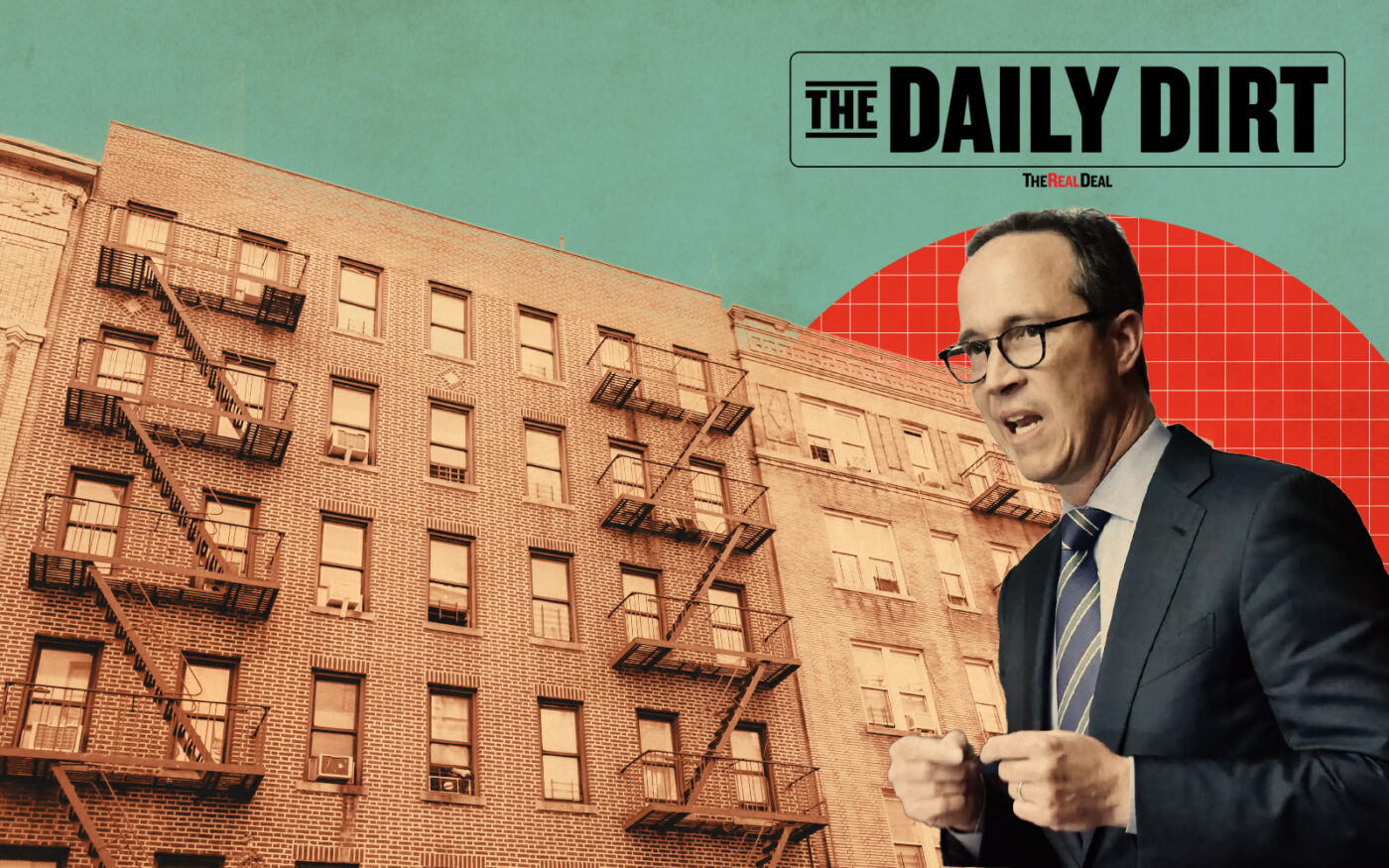Jim Walden wants to create a new form of rent stabilization that would apply to a subset of new rental buildings.
Walden, an attorney who formerly worked as a federal prosecutor in the U.S. attorney’s office in the Eastern District, is running for mayor as an independent.
This week, he outlined his housing plan in a 100-plus-page slideshow.
One of the proposals is creating a “Truly Affordable” program in newly built multifamily properties.
These projects would set aside 30 to 35 percent of their units as affordable. Affordable is defined here as 25 percent of the area median income, which would be calculated on a borough level, rather than citywide, plus counties outside the city.
That’s significantly lower than the average 80 percent AMI we see on many multifamily projects. (Under the Mandatory Inclusionary Housing program, an average 40 percent AMI is the lowest level required.)
Let’s dive into the fine print.
The rents would be frozen at this level for five years, then increased based on a number of factors. Walden envisions that these affordable units would be divided between four groups: tenants looking to escape existing dilapidated stabilized buildings, seniors, public servants and young professionals. The first two groups would lock in rent increases (based on fractions of increases in building expenses) in their leases. The other two groups would gradually see their rent increase after year five, eventually paying full market rent in year eight.
He also wants these tenants to work out any disputes with their landlords through mediation, overseen by a new agency (a sort of Get Stuff Built 2.0), rather than housing court.
Walden estimates that his plan could create upwards of 50,000 homes per year and proposes a series of new taxes (including levies on air rights transfers, luxury rentals and long-term vacancies) to help pay for it.
As you can see, there is a lot to parse through, and a lot that would need to happen for this and other proposals in the plan to move forward (aside from, obviously, the uphill battle that Walden faces in beating the competition in November). Moving to a model that involves temporary rather than permanent affordability, which is the case for MIH projects, would likely be a tough sell. Walden’s plans call for this kind of project on city-owned property, which would be transferred at zero cost.
Elected officials routinely demand 100 percent affordability on projects where 25 percent or more of the units have rents set below market rates in perpetuity. Which is to say: they are almost certainly not going to love an affordability scheme that isn’t permanent.
It should be noted that the reason I’m able to even engage with the details at this level is because the plan is very long, and Walden was willing to discuss aspects that were not explained. This is my unsubtle way of encouraging candidates to get into the weeds with their housing plans: Don’t you want to answer my millions of policy questions? Doesn’t that sound like so much fun?
What we’re thinking about: Of the mayoral candidates who have released housing plans, which have you been most impressed by? Send a note to kathryn@realtacticspro.com.
A thing we’ve learned: I asked the U.S. Department of Transportation about Gov. Kathy Hochul’s response to the Trump administration taking over the redesign and possible expansion of Penn Station. Hochul thanked the administration “for taking on the sole responsibility to deliver the beautiful new $7 billion station that New Yorkers deserve.”
The DOT’s response: “Even Governor Hochul agrees that the MTA is too much of a mess to handle a project of this size and national importance.”
Elsewhere in New York…
—ICYMI, the Rent Guidelines Board released its recommended ranges for increases on one- and two-year rent stabilized leases. My colleague Suzannah Cavanaugh reports that the board recommended increasing rents by up to 6.25 percent for one-year leases and up to 9.75 percent for two-year leases.
— The state has agreed to pay $450,000 to settle a sexual harassment lawsuit against former Gov. Andrew Cuomo, which was brought by his former secretary, Charlotte Bennett, Gothamist reports. The lawsuit accused Cuomo of asking her inappropriate questions about her sex life and alleged that the state bungled a formal complaint she filed. The state did not admit to any wrongdoing in the settlement. A spokesperson for Cuomo said the settlement underscored that the lawsuit was political. An attorney for Bennett indicated that her client is happy to move on with her life.
— The city is holding off on fully enforcing its compost rules, WABC reports. The city will only issue fines to repeat offenders in buildings with more than 30 units.
Closing Time
Residential: The priciest residential sale Friday was $46.9 million for a condominium unit at 111 West 57th Street. The 7,300-square-foot condo in Central Park came in at nearly $11 million less than the developer’s offering plan. Sotheby’s International Realty’s Nikki Field Team had the listing.
Commercial: The most expensive commercial closing of the day was $85.7 million for 569 Lexington Avenue, units 2-5. The 19-story Midtown building is the Summit Hotel, and The City University of New York is listed as the buyer of the timeshare space.
New to the Market: The highest price for a residential property hitting the market was $5.4 million for a condo unit at 66 Leonard Street. The Tribeca condo unit is 2,900 square feet. Compass’s Randy Baruh and Christine Calvo have the listing.
Breaking Ground: The largest new building application filed was for a 309,145-square-foot, 14-story, mixed-use building at 450 Powell Street in Brooklyn. Frank Quatela of Quatela Architects is the applicant of record. — Joseph Jungermann
